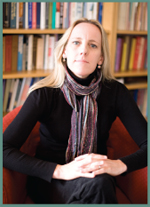To Change Everything, We Need Everyone

People of color throughout the United States are receiving more than their fair share of the poisonous fruits of industrial production. They live cheek by jowl with waste dumps, incinerators, landfills, smelters, factories, chemical plants, and oil refineries whose operations make them sick and kill them young. They are poisoned by the air they breathe, the water they drink, the fish they catch, the vegetables they grow, and, in the case of children, the very ground they play on.
These words appeared in the pages of this magazine twenty-five years ago, in the July/August 1994 issue, in an article titled, “Black, Brown, Red, and Poisoned.” Co-written by University of Pennsylvania law professors Regina Austin and Michael Schill, the article provided an expansive look at how activist groups were waging grassroots campaigns all over the country for what they called environmental justice.
In 1994, mainstream environmentalism was viewed by people of color as prioritizing the preservation of wildlife and wilderness. Activists of color, conversely, were prioritizing the survival of marginalized people and the communities in which they lived. “Anti-elitist and anti-racist,” the movement Austin and Schill wrote about was
capitalizing on the social and cultural differences of people of color as it cautiously builds alliances with whites and persons of the middle class. It is both fiercely environmental and conscious of the need for economic development in economically disenfranchised communities.
Today the environmental movement is focused on the threat climate change poses to the planet, and the acknowledgment that social justice is intertwined with the effects of the climate crisis—that poor and marginalized peoples around the world suffer the effects at a disproportionate level—is widely accepted. Today, climate justice frames the warming of the planet and all it brings as an ethical and a political issue, rather than merely a scientific one.
In April, the American Humanist Association launched the Humanist Environmental Response Effort (HERE) for Climate. Acknowledging that humans are responsible for creating the climate crisis and that the only way to address it effectively is through strong and sustained personal and collective action, HERE for Climate aims to raise awareness and connect local individuals and community organizations with the resources they need to have an impact. In May, in conjunction with HERE for Climate and as part of its open lecture series, the AHA’s Center for Education hosted a one-day conference in Minneapolis, Minnesota, bringing together local activists and experts on sustainable energy and agriculture, community health, and policy related to climate justice. We’re grateful to the six keynote speakers for allowing us to adapt their talks into this special issue, “Climate Justice: The Minnesota Model for Building a Better Future for Us All.” Reading these pieces all the way through will give you a sense of the power of this conference and the connective energy it conveyed.
After the keynote presentations, all six speakers sat as a panel and continued the conversation about the growing convergence of environmental and social justice movements. One of the ideas that struck me as especially profound was the notion that privilege affects people’s thinking on climate change. That those who’ve experienced most of the benefits—and the least of the costs—of an unjust and unsustainable society are not in touch with so-called dark emotion in the same way that marginalized communities are. That loss, grief, chaos, and fear are normal parts of life that many in more privileged communities are unprepared to engage.
I personally have never experienced a panel that was so intersectional, so evenly contributory, and, it bears repeating, powerful. Talking to the speakers at lunch, they expressed a similar appreciation, both for their colleagues’ specific expertise and the cohesiveness of the climate justice theme incorporated into each talk. They credited the AHA Center for Education, namely Director Kristin Wintermute, for bringing them together and for clearly articulating that theme. Echoing the slogan of the 100% Campaign for clean energy in Minnesota, to change everything, we need everyone. Climate Justice: A Better Future for Us All was a model of this very idea.
